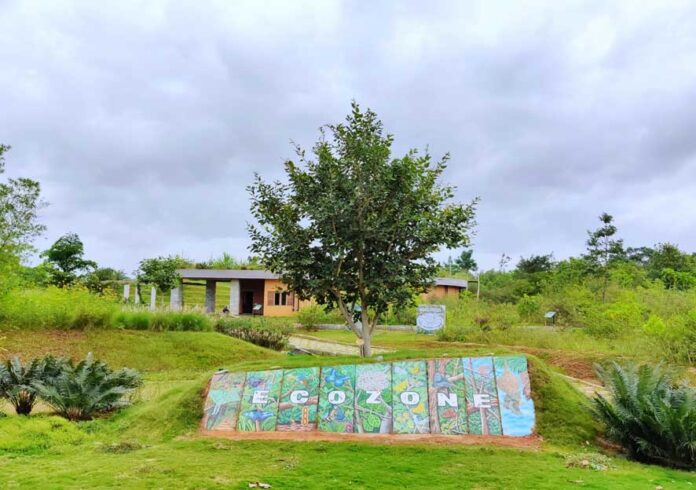
On the occasion of World Environment Health Day 2025, Toyota Kirloskar Motor (TKM) reinforced its commitment to environmental sustainability and public well-being in India. In alignment with the global Toyota Environmental Challenge 2050 (TEC 2050), TKM is actively reducing its carbon footprint by embedding sustainable practices across its manufacturing operations and entire value chain.
TKM’s efforts go beyond eco-friendly products to include natural resource conservation, waste reduction, pollution control, and community development—contributing to cleaner air, water, and healthier living conditions. The company recognizes the vital connection between environmental quality and public health, with initiatives designed to create lasting, measurable impact.
Driven by its core value of ‘Respect for the Planet’, TKM integrates innovation and clear sustainability goals into its products, operations, and social programs—ensuring scalable outcomes that support both environmental and societal progress.
Expressing his views, Mr. B. Padmanabha, Executive Vice President & Director – Manufacturing, Toyota Kirloskar Motor, said: “At TKM, sustainability is the very foundation of how we operate, innovate, and grow. Over the past year, we have advanced decisively across multiple fronts sustaining 100% renewable energy at Bidadi operations, promoting decarbonization across value chain and moving towards a circular economy. Through our efforts, we have effectively touched the lives of millions through our far-reaching community programs. Together with our partners, stakeholders, and employees, we are helping define the blueprint of a sustainable future for India and beyond.”
Eco-efficient Manufacturing & Resource Stewardship
At its Bidadi plants, TKM is moving steadily towards its Net Zero Carbon in Manufacturing Operations by 2035, while also committing to achieve net zero across the entire value chain by 2050.
Key highlights include:
· Renewable Energy Transition: TKM has achieved 100% renewable grid electricity, through dedicated solar and wind installations upto 50.4 MW renewable energy capacity. This shift has enabled annual reductions of over 83000 tons of CO₂, supported by adoption of energy-efficient technologies that continue to reduce specific energy consumption year-on-year.
· Water Stewardship: Over 89% of water requirements for production are now fulfilled through recycling and rainwater harvesting. We have 18 rainwater recharge pits along with two rainwater harvesting ponds of combined 51000 m3 capacity. Using membrane bio reactors (MBRs) and reverse osmosis (RO) technologies, nearly 60% of wastewater is treated and redirected into manufacturing.
· Waste Circularity: TKM has achieved Zero Waste-to-Landfill status across all its plants, with an over 96% recycling rate. Beyond internal waste, the company supports India’s Vehicle Scrappage Policy by developing authorized recycling channels for end-of-life vehicles, enabling circularity from production to post-consumer use.
· Biodiversity & Carbon Sequestration: Through the Toyota Green Wave Project, TKM has a green cover of over 112.4 acres, creating habitats for 790+ species of flora and 410+ species of fauna. Miyawaki plantations have already sequestered 8118 tons of carbon, demonstrating nearly 30.86 tons per acre compared with conventional plantation methods (8.45 tons/acre).
The 25-acre Ecozone experiential learning hub continues to serve as a powerful community platform for environmental education, empowering over 40,000 students and stakeholders to become eco-champions.
Decarbonizing the Value Chain
Beyond manufacturing, TKM has strengthened green supply chain initiatives, introducing stringent supplier ESG compliance frameworks and green logistics operations to reduce hidden lifecycle emissions. Its eco-dealership networks further integrate sustainability across customer touchpoints, reducing environmental impact while enhancing stakeholder experience.
Advances Carbon Neutrality with Multi-Pathway Strategy
Toyota Kirloskar Motor (TKM) is accelerating its carbon-neutral goals through a multi-pathway approach, offering diverse electrified mobility solutions including Hybrid Electric, Plug-in Hybrid, Fuel Cell Electric, and Battery Electric Vehicles tailored to India’s energy landscape.
The company is also pioneering Electrified Flex-Fuel Vehicles (EFFVs), combining biofuels with hybrid technology. In 2023, TKM unveiled the world’s first BS 6 (Stage II) Electrified Flex-Fuel Vehicle prototype based on the Innova Hycross.
In June 2025, TKM partnered with Ohmium International to develop scalable green hydrogen-based power solutions beyond mobility, targeting microgrids, data centers, and remote areas.
Additional initiatives include Toyota Mirai FCEV pilot projects in India, collaborative feasibility studies with institutions like IISc and ICAT, and supplying fuel cell modules for hydrogen-powered commercial vehicle prototypes—marking key steps toward a hydrogen-powered, low-carbon future.
Community-Centric Sustainability
TKM has further strengthened its social impact by addressing pressing community needs through strategic CSR programs:
· Water Security: In February 2025, TKM inaugurated one of the water purification units in Mysore district, directly benefiting nearly 3,98,870 people with access to safe drinking water. With six-stage purification, real-time monitoring, and solar backup, these units provide a combined 7,500 liters/hour capacity for communities.
· Rural Transformation: Through Project Jeevan Dhara, launched in January 2025 with Watershed Organization Trust (WOTR), TKM is implementing watershed management across 5,322 hectares in nine villages, positively impacting 11,026 people across 2,063 households.
· Ecosystem Rejuvenation: Adoption of Abbanakuppe Lake has enhanced water quality, biodiversity, and recreation, directly benefitting 8,000 residents across six villages.
· Healthcare: Through expanded healthcare access via mobile clinics and telemedicine, underserved communities are being reached.







